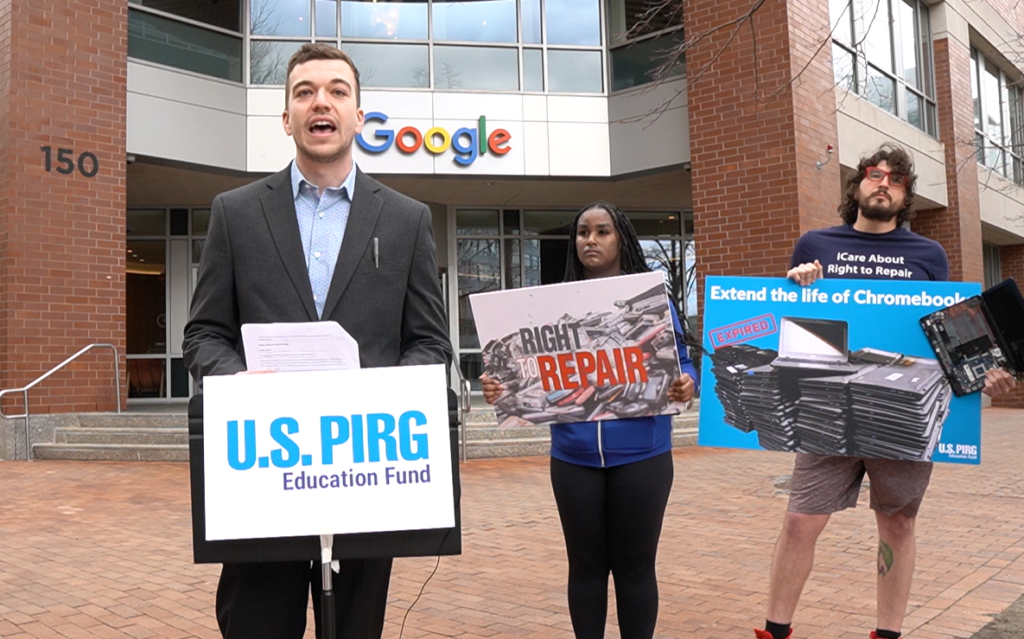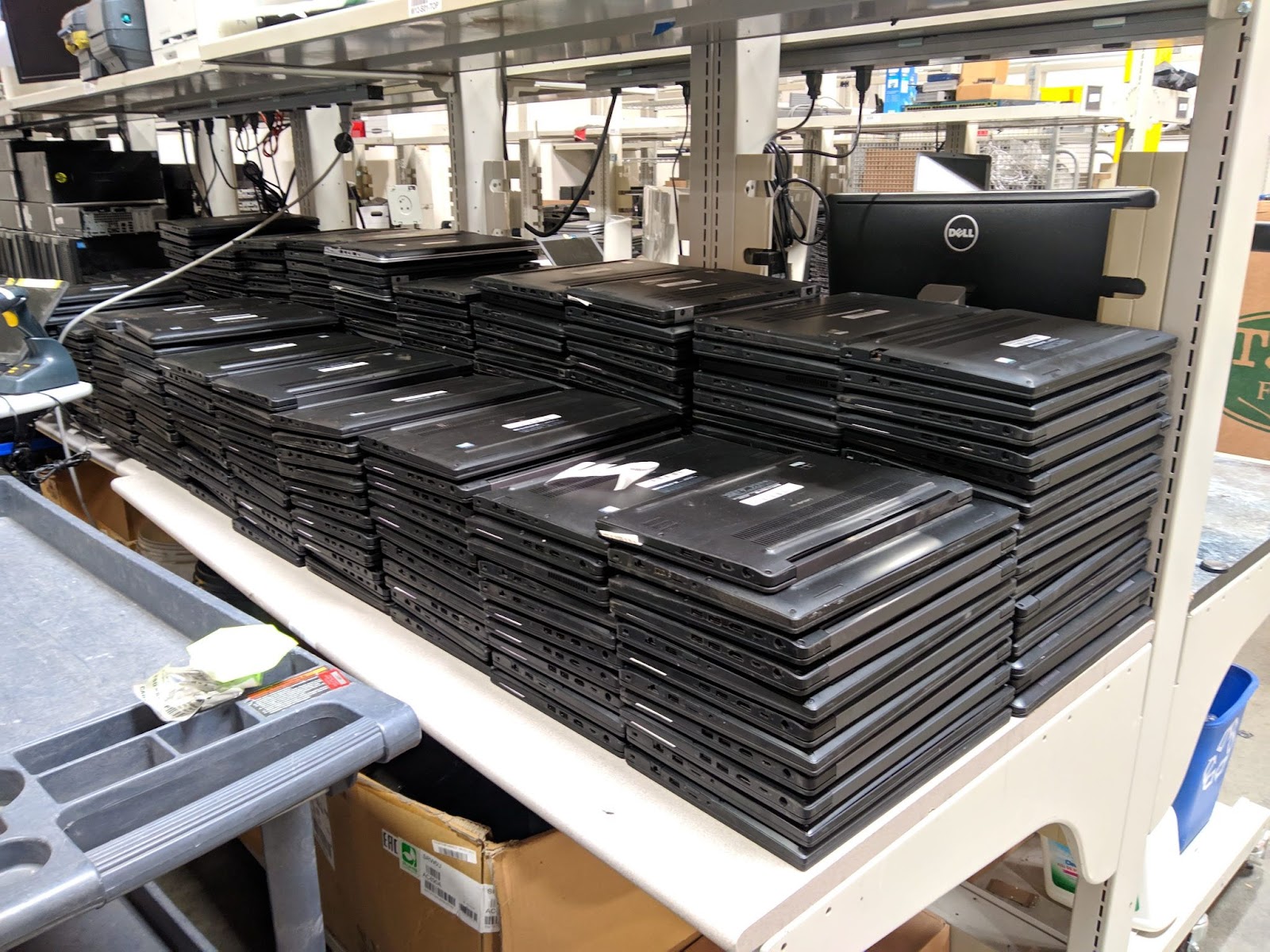Media Contacts
Director, Designed to Last Campaign, U.S. PIRG Education Fund
[email protected]
Since we published this update, Google has committed to extend the life of Chromebooks! Learn more about the victory here.
CAMBRIDGE, Mass. — The COVID-19 pandemic pushed schools to provide all their students with their own devices, often low-cost Chromebooks. But now, many of these Chromebooks are failing, according to a new report by U.S. PIRG Education Fund entitled “Chromebook Churn.” We expect expiration dates for milk, but not for laptops.

Photo by Nathan Proctor | TPIN
Report release in front of Google Cambridge Offices. Left to Right: Lucas Rockett Gutterman, U.S. PIRG Education Fund; Monse Genao, Senior at Worcester Technical HS;David Webb, Hamilton Computer Repairs.
Doubling the life of just Chromebooks sold in 2020 could cut emissions equivalent to taking 900 thousand cars off the road for a year, more than the number of cars registered in Mississippi.
“We can’t afford to stay on the disposability treadmill,” said Lucas Rockett Gutterman, the author of the report and the director of U.S. PIRG Education Fund’s “Designed to Last” campaign. “For the sake of Americans’ wallets and America’s environment, all tech devices should last longer. Google can lead the way by slowing down the ‘Chromebook churn.’”

Schools have piles of working Chromebooks that have become e-waste because they no longer receive software support.
Chromebooks have a built-in “death date,” after which software support ends. Once laptops have “expired,” they don’t receive updates and can’t access secure websites. For example, instructors have reported that expired laptops can’t access online state testing websites.
“Chromebooks aren’t built to last. Professional repair techs tell me they’re often forced to chuck good Chromebook hardware with years of life left due to aggressive software expiration dates. Let’s stop wasting money and our planet’s resources on premature upgrades,” said Dr. Elizabeth Chamberlain, the Director of Sustainability at repair website iFixit.
Policies that give every student a laptop are likely here to stay, and the consequences of balancing utility and sustainability are huge. Doubling the lifespan of Chromebooks for the 48.1 million K-12 public school students in the U.S. could save taxpayers $1.8 billion dollars, assuming no additional maintenance costs.
The report provides recommendations to Google that could double the life of these popular laptops. For example, Google should extend the Automatic Update Expiration (AUE) for all models to 10 years after their launch dates. The company can also push Chromebook manufacturers to produce spare parts and standardize part design to the greatest extent possible.
“The least we can do for students who rely on their laptops is ensure these devices are durable and repairable—not part of a constant churn,” said Gutteman. “With more tech in our lives and classrooms, if Google wants to be a trusted source for tens of millions of students, they need to make laptops that families and school districts can count on.”